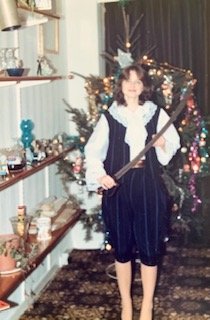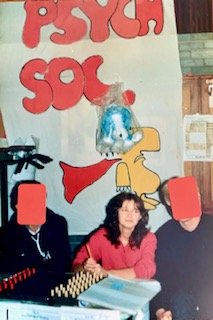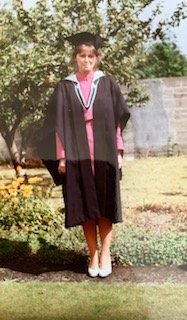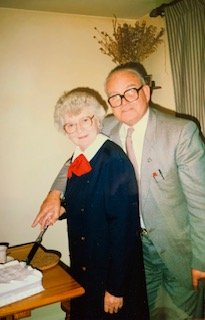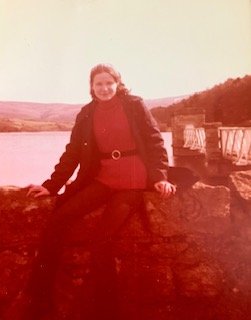Mary talks about getting the contraceptive pill from the doctor to ‘regulate her periods’…
“So if you wanted the pill, what we mostly did was— you went to your doctor and said you were having a lot of period pain and all this kind of— you made up this big old story, and he'd put you on the pill. Because they were doing that to regulate women's periods. And we knew that. So we'd go, and that's how you got the pill.
All of us— the doctor we went to was our family doctor and make no mistake like [laughs], you had no trust in his confidentiality whatsoever [laughs]. Because he knew your Mum and your Dad and your brother and your friend and, you know, his wife knew everybody and even going to him, you didn't want him to think that you were fast or loose or fast and loose, whatever.
I remember him actually saying to me, "now Mary, I'm giving you these tablets," not pills, tablets, "to regulate your periods" or whatever. "Now, you know, you want to make sure if you keep these in your handbag, don't let them fall out because you know they look— they are a contraceptive pill." So it would be embarrassing to me that people would know I was on the pill, so don't let anyone see them in your bag. He said that to me, the doctor. [Laughs].”
Mary talks about growing up in Terranure, Dublin in the 1980s. She describes her school life, the close female friendships and socialising she enjoyed as a teenager. She recalls many examples of how girls and boys were treated differently and describes how she learnt about sex, sexuality and contraception. Mary recalls meeting her husband and falling in love and the thrill of going to university at UCD. Her best friend Mark was gay and Mary described how she felt more seen and heard with her gay male friends than in straight male spaces. Mary described the way the psychology department at UCD was dominated by the clergy; she recounted her battle with the department to do psychology with history rather than double psychology. She gave many examples of her close relationship with her father; his belief in her and his empathy for her as a woman and a mother. She reflected on her own intellectual development in learning Irish history in Dublin and in London and some of the assumptions she had encountered about different historical understandings of Irish history and revisionism.
For more information on accessing Mary’s full interview or transcript please email faisneis@unaganaguna.org

